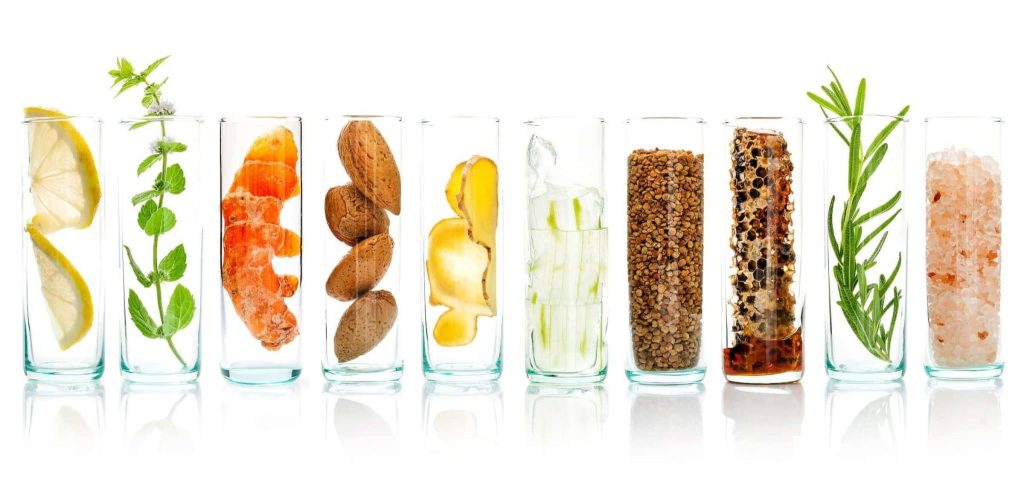Vegan cosmetics has ceased to be an emerging trend and has become a growing demand from informed, conscious consumers committed to a more ethical and sustainable lifestyle. In a scenario where values of transparency, animal welfare and environmental responsibility take centre stage, developing a 100% vegan brand represents a unique opportunity to combine positive impact with a competitive business model.
Unlike “cruelty-free” cosmetics (which guarantee they have not been tested on animals) or “natural” cosmetics (which prioritise ingredients of natural origin), vegan cosmetics exclude all animal-derived ingredients or their by-products, such as beeswax, animal collagen or lanolin. This distinction is key when communicating your value proposition and planning product development.
In this context, OEM/ODM laboratories specialising in vegan formulations play a decisive role. Their technical knowledge, access to certified ingredients and regulatory expertise enable brands and entrepreneurs to create innovative, safe products ready to stand out in increasingly demanding markets.
1. How to Design 100% Vegan Formulas with Support from Your OEM Laboratory
What a Truly Vegan Formula Means
A vegan formulation contains no animal-derived ingredients or by-products. Common ingredients to avoid include:
- Beeswax (emollient and thickener)
- Animal collagen and elastin (anti-ageing agents)
- Lanolin (humectant derived from sheep’s wool)
- Carmine (red pigment derived from insects)
The challenge lies in maintaining functionality, stability, and sensorial appeal using safe and effective plant-based or synthetic alternatives. Important factors to consider include texture, skin absorption, fragrance, and shelf life.
Specialist OEM laboratories apply compatibility assessments and pilot testing to ensure replacements perform equally or better than animal-based ingredients, adjusting pH, viscosity, and preservatives to achieve optimal product performance.
Popular Vegan Ingredients and Their Applications
Your laboratory may recommend a range of innovative vegan ingredients such as:
- Fermented hyaluronic acid – a high-performance moisturiser created via biotechnology
- Plant-based squalane – derived from sugarcane or olives, excellent for softening and hydration
- Mineral and plant pigments – alternatives to animal-derived dyes like carmine
- Plant proteins (soy, rice, oat) – for firming and conditioning properties
Other commonly used ingredients include:
- Unrefined cocoa and shea butters – for deep nourishment and emollient effect
- Jojoba, argan or marula oil – with regenerative, antioxidant and soothing properties
- Vegetable glycerine – a powerful humectant derived from plant oils
- Extracts of algae, cucumber, chamomile or calendula – for soothing and antioxidant action
- Plant-derived vitamin E – boosts formulation stability and acts as a natural antioxidant
All ingredients should be selected according to the product’s function, compatibility, and environmental impact.
Advances in Biotechnology Applied to Vegan Products
Biotechnology has revolutionised vegan formulations with innovative replacements for animal-based compounds, including:
- Biosynthetic vegan collagen – developed by fermenting genetically modified yeast or bacteria
- Plant elastin – derived from algae or replicated with plant peptides
- Plant-based silicones – oil-derived emollients that replicate the texture of traditional silicones
These alternatives have proven effective in premium cosmetic formats like serums, face masks and colour cosmetics, where performance and sensory feel are key to consumer loyalty.
Preventing Cross-Contamination
Guaranteeing vegan integrity requires strict control of cross-contamination through:
- Dedicated equipment or certified cleaning procedures
- Verified suppliers with traceable, vegan-certified raw materials
- Good Manufacturing Practices (GMP)
- Allergen controls and traceable documentation
Facilities must be designed to be “vegan compliant”, which includes:
- Separated storage for vegan materials
- Digital inventory traceability
- Trained staff
- Regular internal audits
Some labs also integrate HACCP protocols adapted to vegan standards, ensuring every stage from reception to packaging meets ethical guidelines.
Developing “Free-From” Products Aligned with Vegan Philosophy
Vegan consumers often look for additional “free-from” assurances such as:
- No parabens
- No sulphates (SLS/SLES)
- No synthetic fragrances
- No artificial colourants
- No petroleum-derived or volatile silicones
Developing vegan and clean formulations appeals to audiences seeking conscious consumption, sensitive-skin compatibility, or those aligned with clean beauty standards. Your laboratory can help align your brand with certifications required by ecological and vegan entities.
Advantages of Working with a Vegan OEM/ODM Laboratory
An experienced vegan OEM/ODM lab can support your brand in the following ways:
- Verify the entire supply chain to meet vegan standards
- Propose functional alternatives to non-vegan ingredients
- Prepare regulatory and certification documentation
- Develop innovative textures that enhance user experience
- Reduce production costs while maintaining quality
- Ensure packaging compatibility with sustainable solutions
- Prototype full product ranges (skincare, haircare, bodycare, makeup)
Partnering with the right lab ensures shorter development cycles, lower risk of non-compliance, and full alignment with the values of the global vegan-conscious consumer base.

2. Which Certifications, Claims, and Tests You Need for the European and Global Market
Internationally Recognised Vegan Certifications
To officially position your products as vegan, you should pursue certifications such as:
- Vegan Society (UK)
- V-Label (EU)
- EVE VEGAN (France)
- Certified Vegan (USA)
Each program involves unique criteria, documentation, and audits, but all serve to build trust with both consumers and retailers. For example, the Vegan Society requires documented verification for each ingredient and process to avoid contamination.
These certifications also open doors to export and distribution through:
- Ecological and natural retailers
- Online vegan platforms
- Regulated international markets
Valid and Regulated Claims
Claims you may use—provided they are documented and supported—include:
- “100% vegan”
- “Free from animal-derived ingredients”
- “Plant formula”
- “Plant-based”
In some regions, such as the European Union, such claims must comply with strict labelling regulations to ensure clarity and prevent misleading information.
Mandatory and Recommended Tests
To ensure your product is compliant and market-ready, the following tests are essential:
- Stability and packaging compatibility
- Cosmetic safety assessment (EU Regulation EC 1223/2009)
- Dermatological and usage testing
- Microbiological analysis
- Challenge test (preservative efficacy validation)
Including These Tests: Legal Compliance and Consumer Confidence
Including these tests not only ensures regulatory compliance but also enhances consumer confidence and minimises post-sale risks. Demonstrating responsibility from formulation to shelf is crucial to long-term brand credibility.
Regulatory Considerations by Region
European Union
- Animal testing is banned since 2013
- Strict regulatory framework (EU Regulation 1223/2009)
- Mandatory Product Information File (PIF), CPNP notification and safety reports
United States
- Regulated by the FDA, under a “self-regulation” model
- Brands must ensure traceability, safety and accurate claims
- Vegan certification is voluntary but increasingly expected
Latin America
- Countries such as Brazil and Mexico are progressively adopting bans on animal testing
- Regulatory heterogeneity means local consultancy is key
Middle East
- UAE and Saudi Arabia require product registration and documentation
- Some markets may still require animal testing for registration purposes
- Careful review of each country’s protocols is critical
Understanding these nuances will help you adapt your vegan strategy to specific export markets and build trust with local authorities and consumers.
3. Branding and Ethical Marketing Strategies to Differentiate Your Proposition
Beyond the Vegan Logo: Building a Brand with Meaning
The modern vegan consumer expects more than a label. Your brand must reflect consistency in:
- Company philosophy
- Ingredient sourcing
- Packaging design
- Visual identity and brand voice
Avoid contradictions such as vegan formulas in single-use plastic, or ambiguous suppliers. Authenticity and internal coherence are key to credibility.
Purpose-Driven Storytelling
Your brand story should reflect your values and commitment to:
- Animal welfare
- Safe, clean ingredients
- Fair trade and sustainability
- Empowered, informed consumers
Use real testimonials, verifiable data, and certifications to build trust. Emotional storytelling with substance helps your brand stand out.
Responsible Packaging
Packaging is part of the message. Align it with your vegan values by choosing:
- Recycled or biodegradable materials
- Refillable or reusable systems
- Plant-based inks and minimalist finishes
- Clear labelling with intuitive icons
Explore zero-waste formats such as solid bars or powders to further reinforce your eco-conscious positioning.
Visual Language and Communication Channels
A recognisable vegan visual language includes:
- Earth tones and green hues
- Icons like leaves, bunnies or globes
- Minimalist, clean design
Effective sales channels for vegan cosmetics include:
- E-commerce platforms with strong storytelling
- Eco marketplaces (e.g. Natura, The Vegan Kind)
- Ethical concept stores and conscious pop-ups
- Strategic partnerships with spas, hotels and salons
Collaborations with vegan influencers and value-aligned ambassadors strengthen your positioning and broaden your reach.
Honesty and Transparency Above All
To avoid greenwashing, communicate clearly:
- Where ingredients come from
- How batches are produced
- What limitations exist (e.g. recyclable but not compostable packaging)
Transparency builds credibility and customer loyalty, making your brand stand out in a crowded market.

4. Competitive Advantages of Launching a Vegan Cosmetics Line
Value-Based Differentiation
A well-executed vegan line helps your brand:
- Enter the premium segment with an ethical proposition
- Capture new niches such as flexitarians and conscious consumers
- Demonstrate social and environmental commitment
Today’s consumer evaluates both performance and purpose. A vegan approach creates a strong emotional connection beyond just product features.
In saturated markets, this positioning becomes a tangible competitive edge based on values, integrity and clarity.
Growing Trend
Vegan cosmetics are expanding rapidly, especially in:
- Western Europe and Nordic countries
- North America (California, New York, Canada)
- Asia-Pacific (South Korea, Japan, Australia)
Growth drivers include:
- Rising awareness of animal and environmental issues
- Digital access to product information
- Influence of public vegan figures
- Inclusion of vegan ranges in mainstream retail
Market projections suggest the vegan cosmetics segment could exceed $25 billion globally by 2030. Early adoption positions your brand as innovative, consistent and ready for scale.
Lower Barrier to Entry with Adequate Support
With the right OEM/ODM partner, creating a vegan line is cost-efficient and scalable:
- Agile prototyping tailored to your business
- Regulatory assistance per target region
- Cost optimisation using certified suppliers
- Accelerated timelines via proven processes
Many labs offer ready-to-customise vegan bases, allowing you to test market response quickly and affordably.
Even with small MOQs, launching a compliant and attractive vegan line is now a realistic path for independent brands.
Customer Loyalty and Reputation
Vegan customers are loyal to transparent, principled brands. This translates to:
- Repeat purchases
- Higher average order value
- Positive brand reputation online
Consistency and honest communication foster long-term trust. Showing your production processes, ingredient sourcing and ethical decisions creates brand advocates within the conscious beauty community.
Partnerships with NGOs, donation programs, local manufacturing, and sustainability reporting all reinforce your values and strengthen your positioning.
Adaptability to Multiple Channels and Formats
Vegan products scale easily into formats such as:
- Facial and body skincare
- Haircare
- Makeup
- Solid cosmetics
- Baby or pet care
They also adapt to diverse sales channels:
- Direct-to-consumer e-commerce
- Sustainable and ethical marketplaces
- Boutique concept stores
- Organic and vegan distribution chains
This multi-platform potential supports strategic growth, especially in wellness and conscious-living spaces where traditional cosmetics are less accepted.
Response to Crises and Regulatory Changes
With increasing scrutiny on:
- Animal testing
- Ingredient transparency
- Environmental impact
…a vegan strategy offers future-proofing and regulatory resilience.
It protects against potential PR crises linked to unethical practices, and certification serves as reputational insurance across markets.
Perceived Value by Investors and Distributors
Vegan brands are increasingly attractive to:
- ESG-focused investors
- Global distributors with ethical positioning
- Accelerator and incubator programs
A well-defined vegan brand with technical reliability can access:
- Impact investment funds
- Partnerships with sustainability-driven retailers
- International expansion via trusted certifications
Distributors favour vegan brands because they align with market demands and reduce regulatory risks.
Conclusion
Creating a vegan cosmetics brand is not just a technical choice—it’s a strategic commitment to ethics, sustainability and transparency. In today’s conscious marketplace, a certified vegan line delivers real competitive value and global resonance.
At MS Cosmetics Lab, we’re your ideal OEM/ODM partner for developing a high-performance vegan line that meets the highest international standards.
Want to develop a vegan brand with real impact? Let’s talk. At MS Cosmetics Lab, we support you every step of the way—from concept to shelf-ready product.




